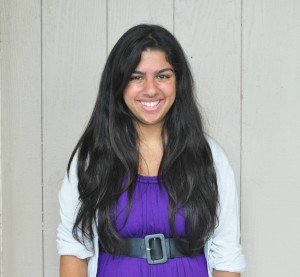Freshman year, I encountered my first nosy parker, who would try to skim over my graded tests. If her discreet mission did not succeed, she would flat out ask what I got. When said I got a B, that peer would smile, congratulate me, then proceed to complain about her A minus. By the end of the year, I figured that as long as I continued with my work ethic, I would not be dragged into this ridiculous scheme that the students here had concocted. I would mock those who gave in.
Similar to Adam Smith’s ideal of the invisible hand — that competition drives the market — is the concept that competition drives MVHS. Whether it be our grades, rallies or extracurriculars, only the fittest can thrive. Maybe I’m taking my economics and biology classes too literally. But if there’s one thing I’m going to miss the most about this school, it’s the competition.
This ignorance of competition thus put me at ease, thinking that my peers were fools to try to outdo each other. Even at rallies, while each class was yelling at the top of their lungs for victory, I sat there wondering what the big deal was.
By the end of sophomore year, many of my friends had internships or jobs, while I was taking things easy. In turn, I lost out on many opportunities. Instead of researching and connecting with people outside of these brick walls, I was stuck in my high school fantasy.
This thought process lost all reason when I found out that one of my closest friends had landed a medical internship at Stanford and did not tell me because she didn’t want everyone to know that she was one step ahead of the game. Everyone here is like a spy, on a mission to succeed.
But when I found out about her secret internship, something clicked –– I wanted to be a spy too. When course selection time came along, I chose harder classes. Since it was too late to gain any outside experience, I decided to “own” my peers by studying ahead of time.
Slowly, I integrated myself into the system of competition that I had once mocked because I too wanted to succeed. I found myself asking my seat partner what she got on the APUSH test.
Looking back, I realize that lightbulb moment was the exact push I needed. When I integrated myself into this system, I started to cultivate myself as an adult. The independence that stemmed from this constant competition provided me with the confidence needed to tackle the future. Being competitive can be bad, but if you use competition in a positive way, you can achieve goals beyond your dreams.
Giving into competition and realizing that it wasn’t a negative aspect of MVHS was the most pivotal choice of my high school career. If I did not adapt to it in high school, I would pretty much fail in college and the real world. We often discredit competition and blame it for our failures. What we fail to realize, though, is that competition is an essential part of the MVHS culture, and without it, success would be unattainable because we wouldn’t be trying our hardest. Giving in wasn’t necessarily for the weak, but rather for those who wanted to make something of themselves like I do.
So with this lesson in mind I’m ready to beat Darwin in his game of survival of the fittest.











